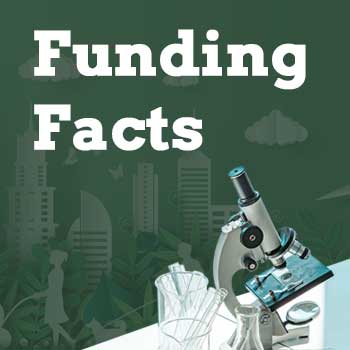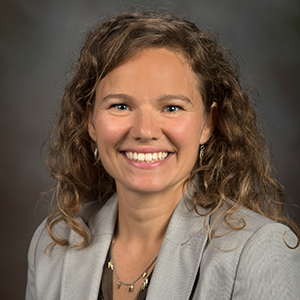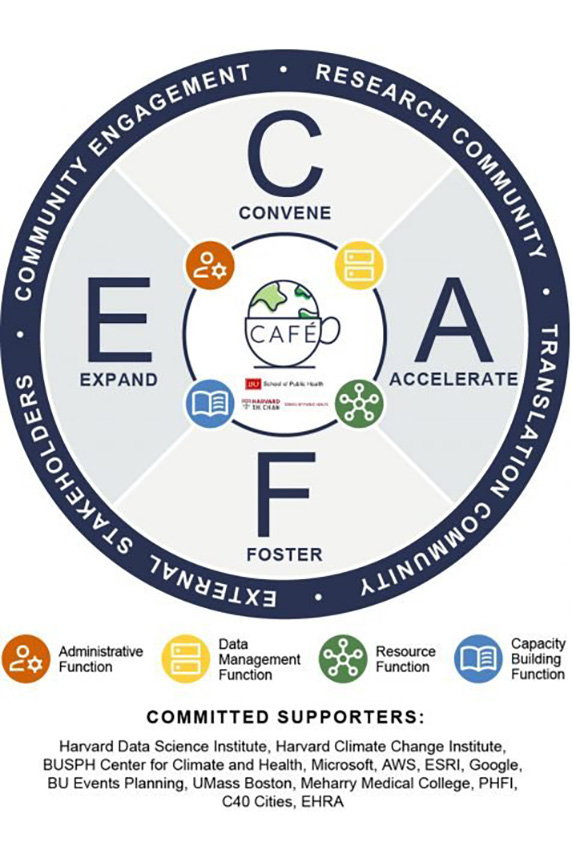
The first CAFÉ Climate and Health Conference brought together more than 900 participants Feb. 5-7 to build a global community of practice and accelerate the pace of research and translation at the intersection of climate change and health. CAFÉ, which stands for Convene, Accelerate, Foster, and Expand the Climate Change and Health Community of Practice, is the Research Coordinating Center for the National Institutes of Health (NIH) Climate Change and Health Initiative.
Academics, government agencies, community-based and non-governmental organizations, industry, and other key stakeholders were able to have virtual conversations that may not be taking place at scale in other settings. Approximately 25% of registrants joined the virtual conference from locations outside of the U.S.
The following NIH institute directors who are members of the executive committee for the NIH Initiative helped kick off the conference. All emphasized the need for a multidisciplinary approach to reduce the health threats posed by climate change across the lifespan and build health resilience, especially among disproportionately affected populations.
- Joshua Gordon, M.D., Ph.D., Director, National Institute of Mental Health.
- Rick Woychik, Ph.D., Director, National Institute of Environmental Health Sciences.
- Shannon Zenk, Ph.D., Director, National Institute on Nursing Research.
- Peter Kilmarx, M.D., Acting Director, Fogarty International Center (FIC).
- Eliseo Pérez-Stable, M.D., Director, National Institute on Minority Health and Health Disparities (NIMHD).
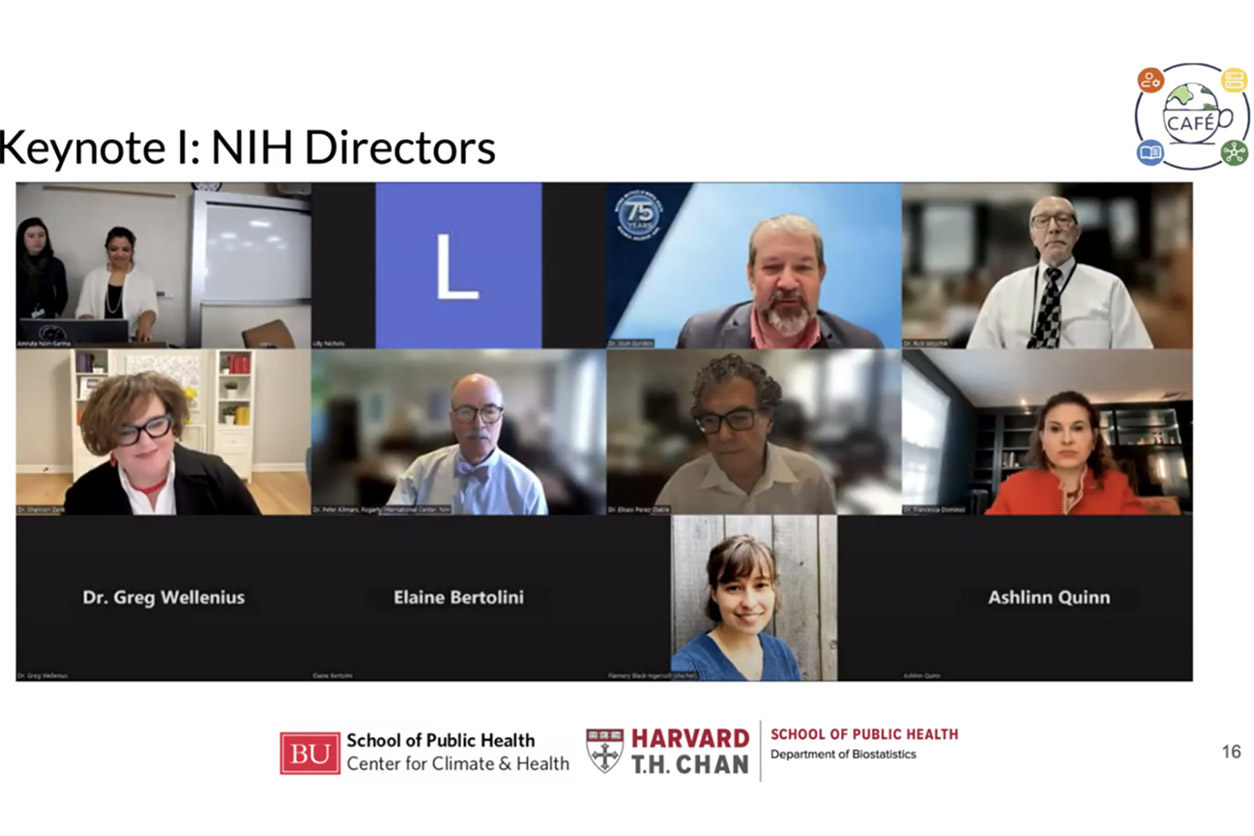
The conference featured more than 70 sessions focusing on a wide range of topics, including funding, community-engaged research, data management, and providing opportunities for networking. Overall, the CAFÉ conference helped facilitate crucial dialogue and collaboration to address pressing environmental and public health challenges.
Big step forward
“This was such an energizing conference,” said Ashlinn Quinn, Ph.D., the NIEHS program officer for climate change and health. “Those of us who worked with the CAFÉ grantees to assemble this interactive conference were very impressed with the level of enthusiasm, motivation, and knowledge that was brought forward by all the parties involved. This is certainly a big step forward for building and sustaining a community of practice in this field.”
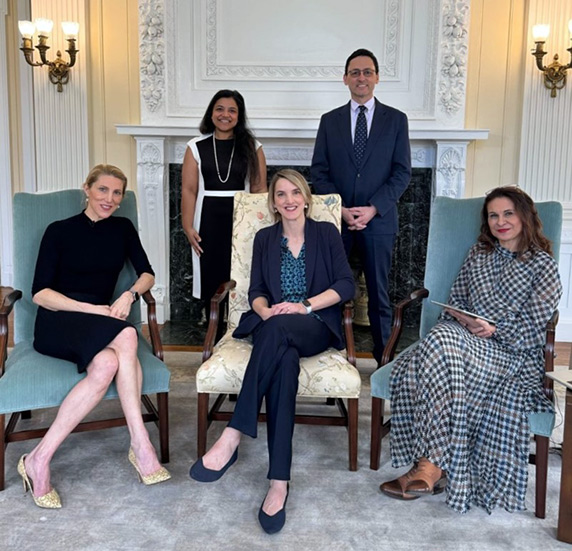
Quinn, Abee Boyles, Ph.D., Aspen Reese, Ph.D. (FIC), Gabriel Lai, Ph.D. (NIMHD), Mary Masterson, Ph.D. (National Heart, Lung, and Blood Institute), and others on the NIH Climate Change and Health Initiative Steering Committee worked with the CAFÉ team and other NIH grantees to plan the successful conference.
CAFÉ is led jointly by the Boston University School of Public Health and the Harvard T.H. Chan School of Public Health as part of a three-year grant from NIH. Gregory Wellenius, Sc.D., a professor of environmental health, and Amruta Nori-Sarma, Ph.D., an assistant professor of environmental health at Boston University, along with Harvard University’s Francesca Dominici, Ph.D., the Clarence James Gamble Professor of Biostatistics, Population, and Data Science, are the CAFÉ leads.
For more details about the conference, and to join the Climate Change and Health Community of Practice, visit: https://climatehealthcafe.org/connect.
(Robin Mackar is a writer and media relations coordinator in the NIEHS Office of Communications and Public Liaison.)





